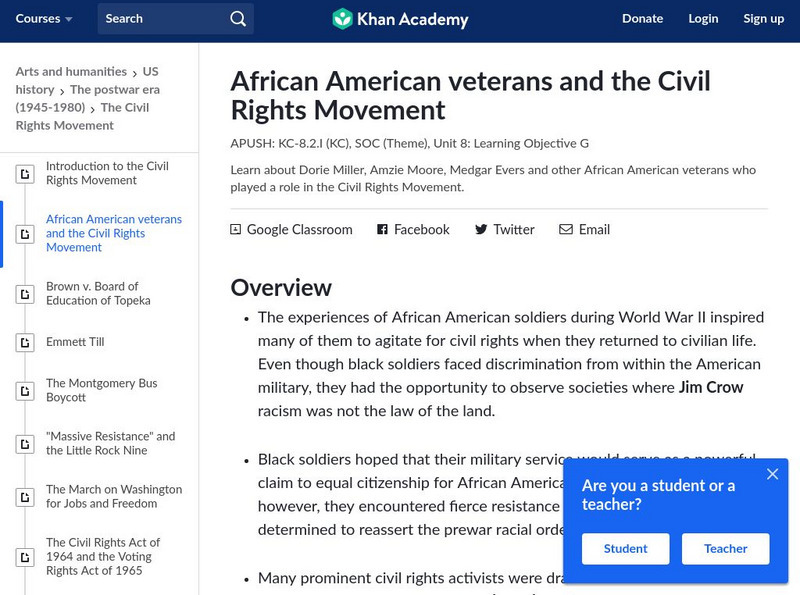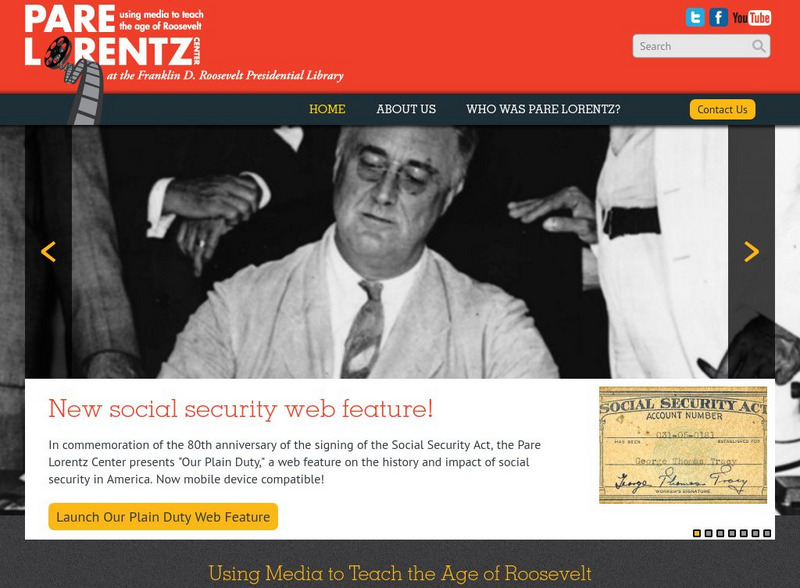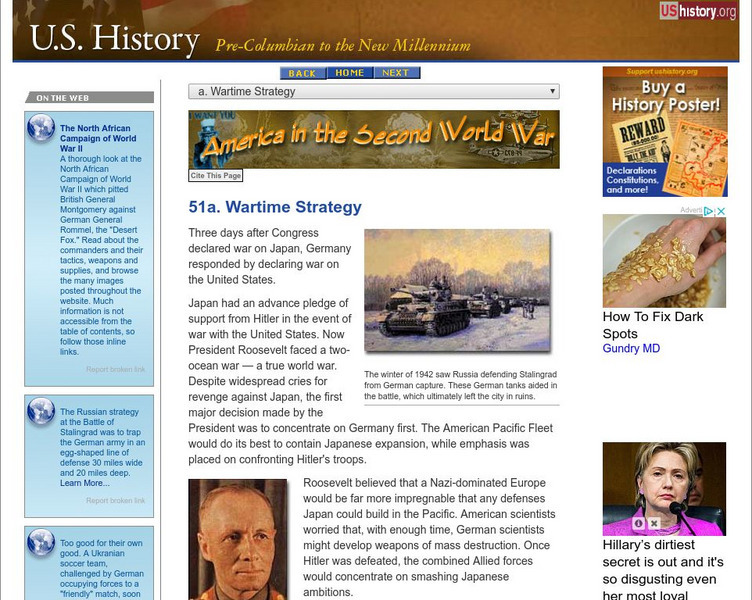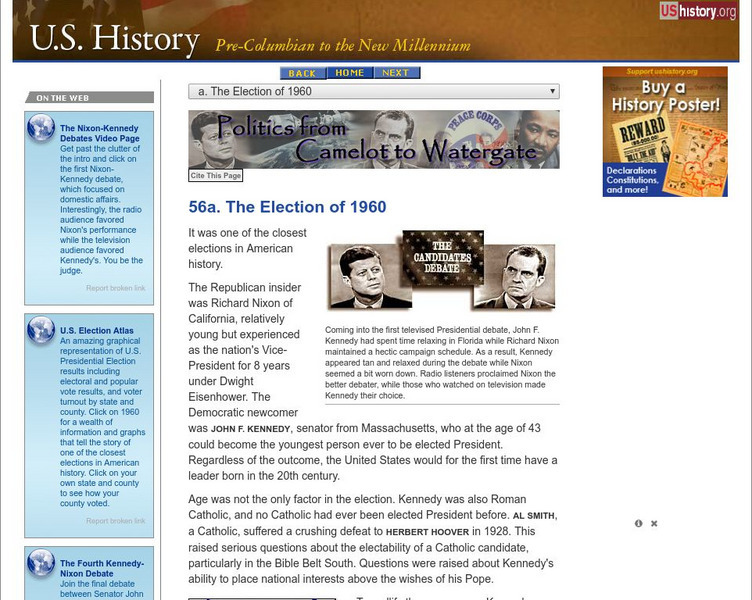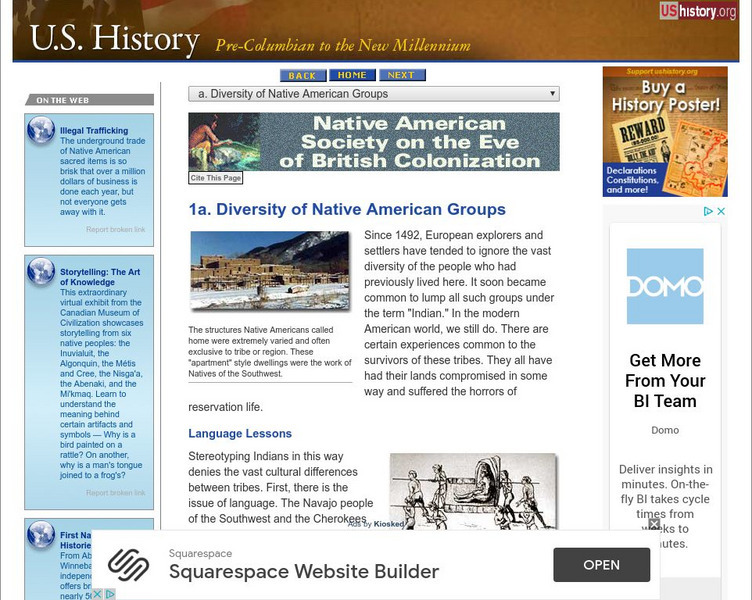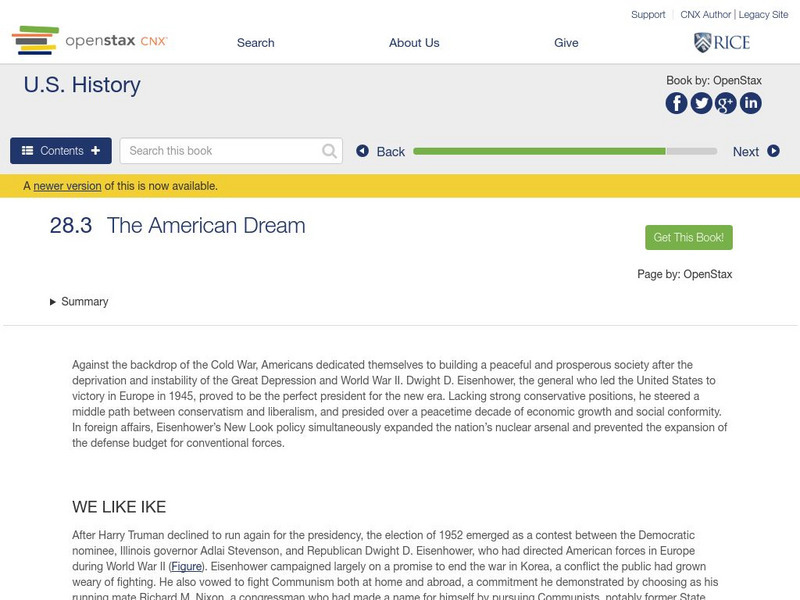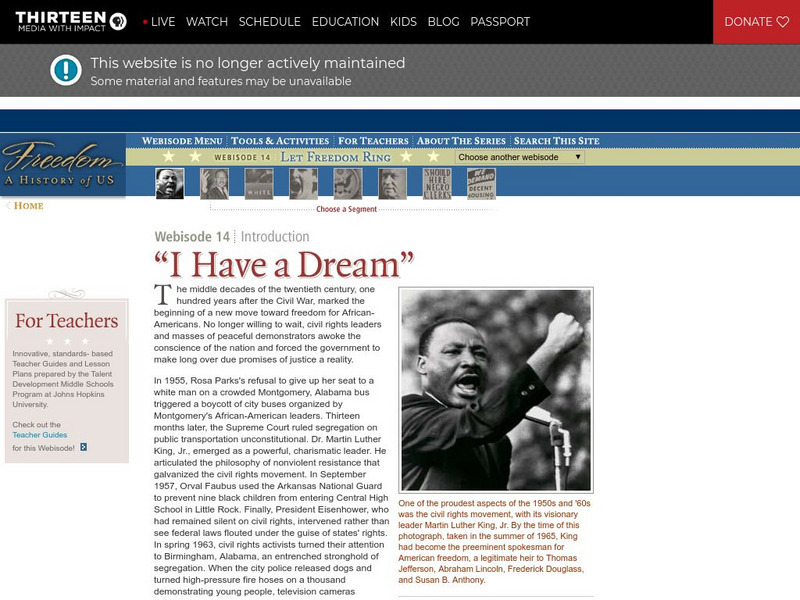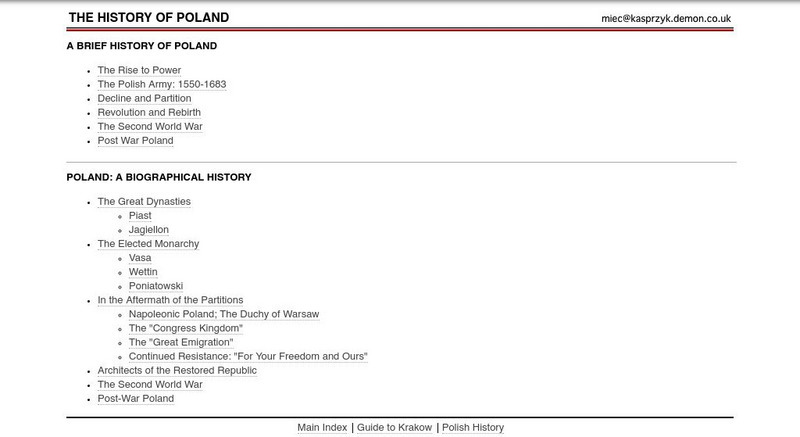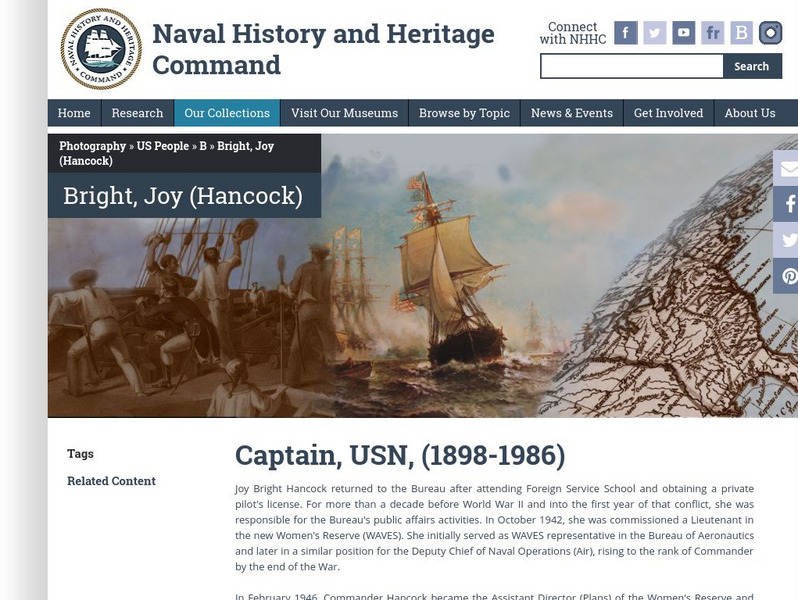Khan Academy
Khan Academy: Pearl Harbor
Describes the surprise attack on Pearl Harbor by Japan, an event that catapulted the United States into World War II.
Khan Academy
Khan Academy: The Baby Boom
Looks at the baby boom in America after World War II - what caused it, why it lasted so long, and the far-reaching social and economic impact it has had on the United States.
Khan Academy
Khan Academy: The Gi Bill
The GI Bill is explained. It provided benefits to American veterans of World War II in the form of education, loans, unemployment income, etc.
Khan Academy
Khan Academy: African American Veterans and the Civil Rights Movement
Many African American veterans joined the Civil Rights Movement after World War II when they found themselves facing continued discrimination at home. Learn about some of the veterans who were prominent activists.
Library of Congress
Loc: Veterans History Project
A collection, sponsored by the Library of Congress, of stories and experiences of veterans "while they are still among us." Students can also interview a veteran using the Project Kit supplied. Choose: How to participate in the Project...
Khan Academy
Khan Academy: Ap Us History: 1890 1945: The Us in Wwi: The Treaty of Versailles
Looks at the Treaty of Versailles, what its terms were, why America never ratified it or joined the League of Nations, why Germans grew to resent the burdens it imposed on them, and how this contributed to Hitler's rise to power....
Khan Academy
Khan Academy: Start of Cold War, Part 1: Yalta Conference and Containment
At the end of World War II, the Yalta Conference saw the splitting of Germany into four zones and the United States began a policy of containment of communism.
Curated OER
National Park Service: Eisenhower National Historic Site: Military Career
Online exhibition details aspects of Eisenhower's military career, beginning with his days as a West Point cadet. Covers his campaigns in North Africa and Italy, his appointment as Supreme Allied Commander, the Normandy invasion, and his...
US Navy
Nhhc: Oceanic Period (1890 1945)
Read about the build-up of the U.S. Navy after the Spanish-American War and how it was used to protech the country in World Wars I and II.
Other
Pare Lorentz Film Center
A media source for information on the life and times of Franklin D. Roosevelt. The film center is named after Pare Lorentz, a renowned documentary filmmaker who created government-sponsored films during Roosevelt's era, as well as...
Independence Hall Association
U.s. History: The Treaty of Versailles and the League of Nations
President Wilson lobbied for a "just peace" for the end of World War I. Read about his Fourteen Points that he thought would accomplish this. See how his plans for a League of Nations and the final terms of the Treaty of Versailles...
Independence Hall Association
U.s. History: Wartime Stategy
Initial focus by the Americans in World War II was containing Germany. Read about the Allied war stategy to "close the ring" and deprive Germany of men and materiel.
Independence Hall Association
U.s. History: The Election of 1960
Read about the campaign and election of 1960 in which the Democratic candidate, Senator John F. Kennedy, ran against the Repbulican candidate, Vice-President Richard M. Nixon. Find out about the issues, the famous debates, and Kennedy's...
Independence Hall Association
U.s. History: Diversity of Native American Groups
Look at the diversity in language, housing, government, and language among the Native American tribes that existed before the Europeans made contact. There is a brief discussion of the Navajo language and the use of Navajo code talkers...
OpenStax
Open Stax: Post War Prosperity and Cold War Fears 1945 1960: The American Dream
Looks at the policies of President Dwight D. Eisenhower, both at home and abroad. Also examines changing gender roles in the 1950s, and the impact of suburbanization on America.
PBS
Wnet: Thirteen: Freedom: A History of Us: Webisode 14: Let Freedom Ring
Series episode covers the civil rights movement and the struggle for equality in post-World War II America.
US Government Publishing Office
Ben's Guide to u.s. Government: Statues and Memorials: Marine Corps War Memorial
Provides images, a brief history of the Battle of Iwo Jima in World War II, and a description of the Marine Corps War Memorial honoring the men of the United States Marine Corps who died in combat.
Digital History
Digital History: Solutions to Five Crises [Pdf]
This site highlights the five foreign policy crises that needed the attention of Harry S. Truman at the end of World War II. Read about the US actions on these crises and determine how these actions affected foreign policy over the next...
Khan Academy
Khan Academy: Period 8: 1945 1980
This Khan Academy resource provides a table of contents with notes for several sections of AP US History: Period 8: 1945-1980.
Other
Kasprzyk's Website: A Summary of Poland's History
A description of the history of Poland, starting with the Piast dynasty and moving forward to the current year.
Curated OER
National Park Service: Confinement and Ethnicity
Confinement and Ethnicity: An Overview of World War II Japanese American Relocation Sites, by J. Burton, M. Farrell, F. Lord, and R. Lord, is an online book no longer in print. It describes the internment and imprisonment of...
US Navy
Naval History and Heritage Center: Captain Joy Bright Hancock
A site from the Naval Historical Center provides biographical information on Joy Bright Hancock (1898-1986), champion for women in the Armed Services.
Independence Hall Association
U.s. History: The Road to Pearl Harbor
A brief overview of the decade prior to the American entrance into World War II. Read about the rise in militarism in both Europe and Japan.
Independence Hall Association
U.s. History: D Day and the German Surrender
A brief description of the end of World War II with the invasion of Normandy on D-Day, the Battle of the Bulge, the Allied race to Berlin, and finally, V-E Day.



